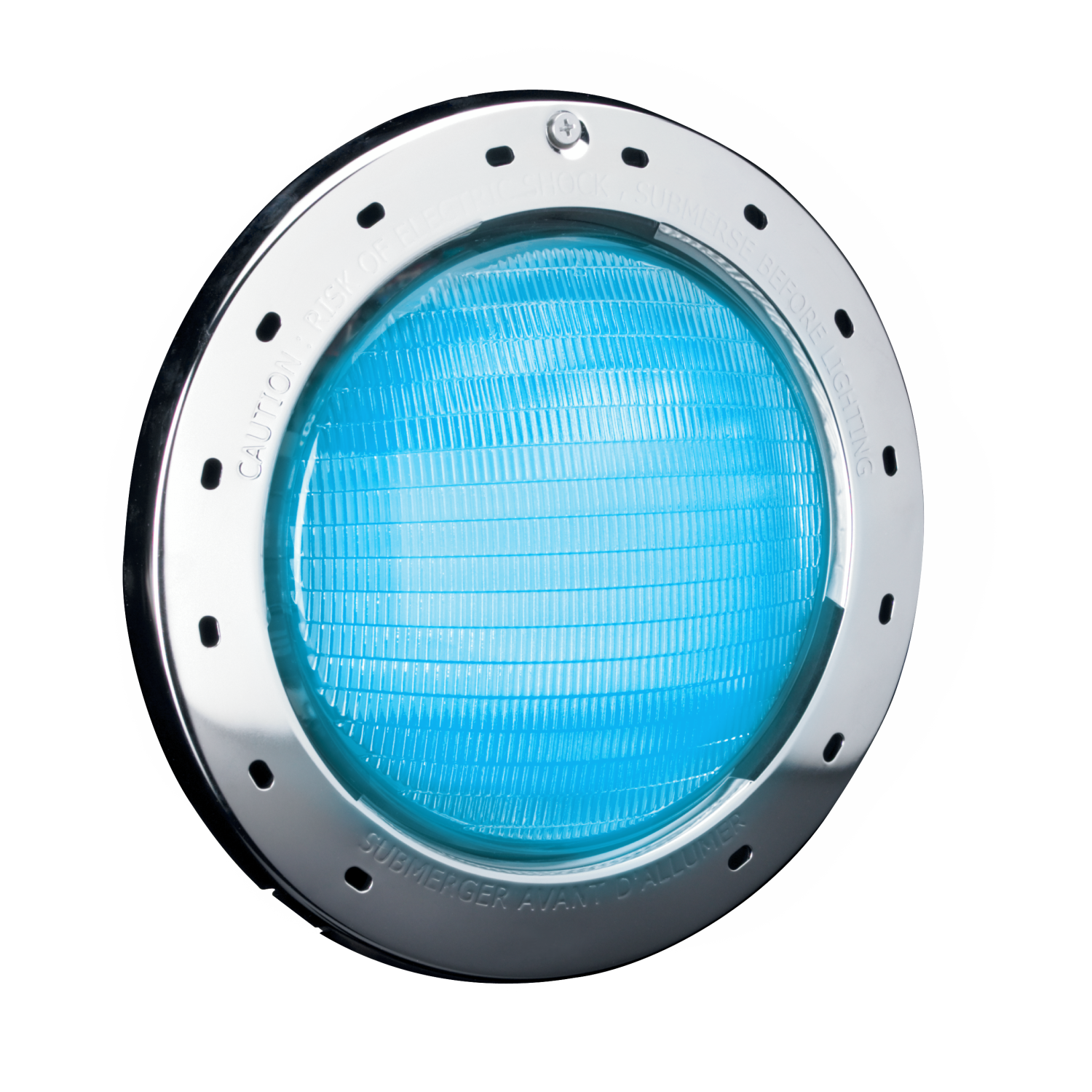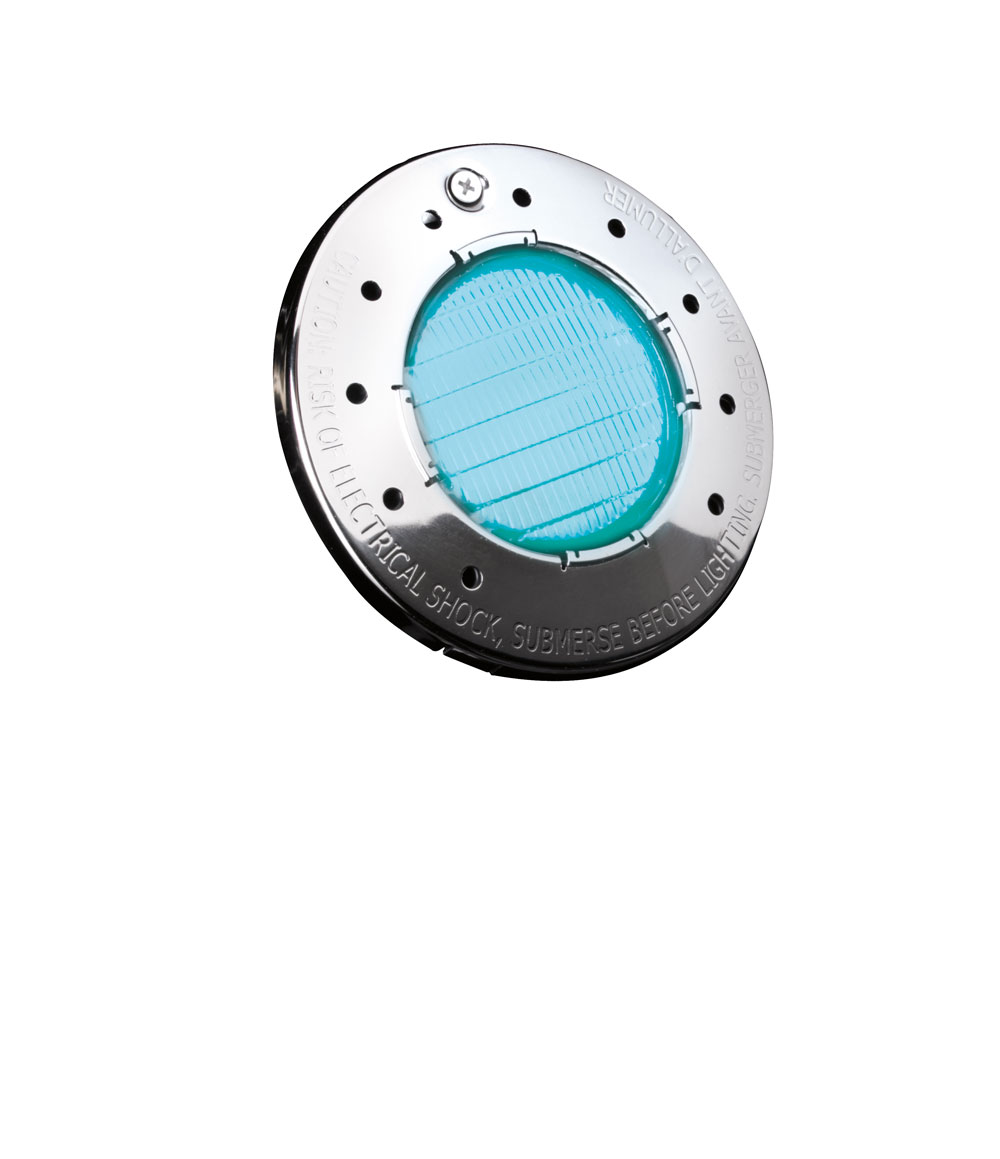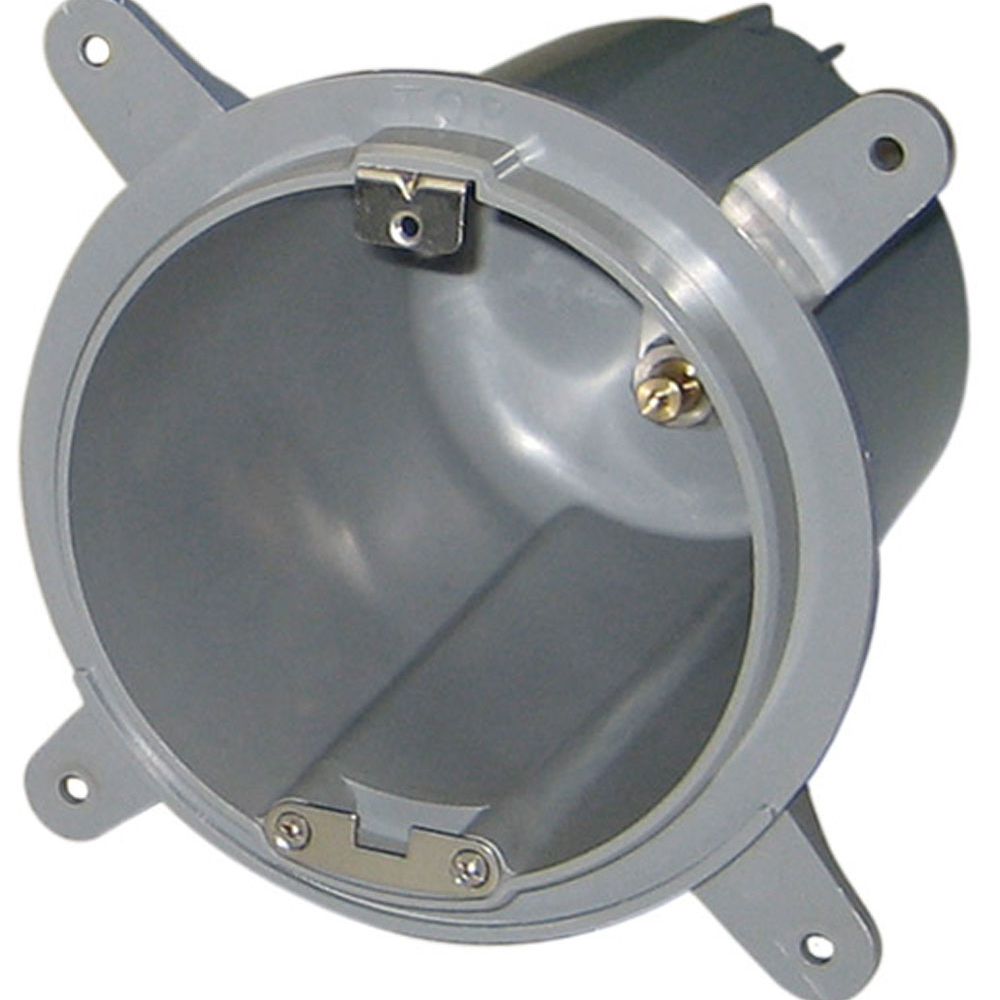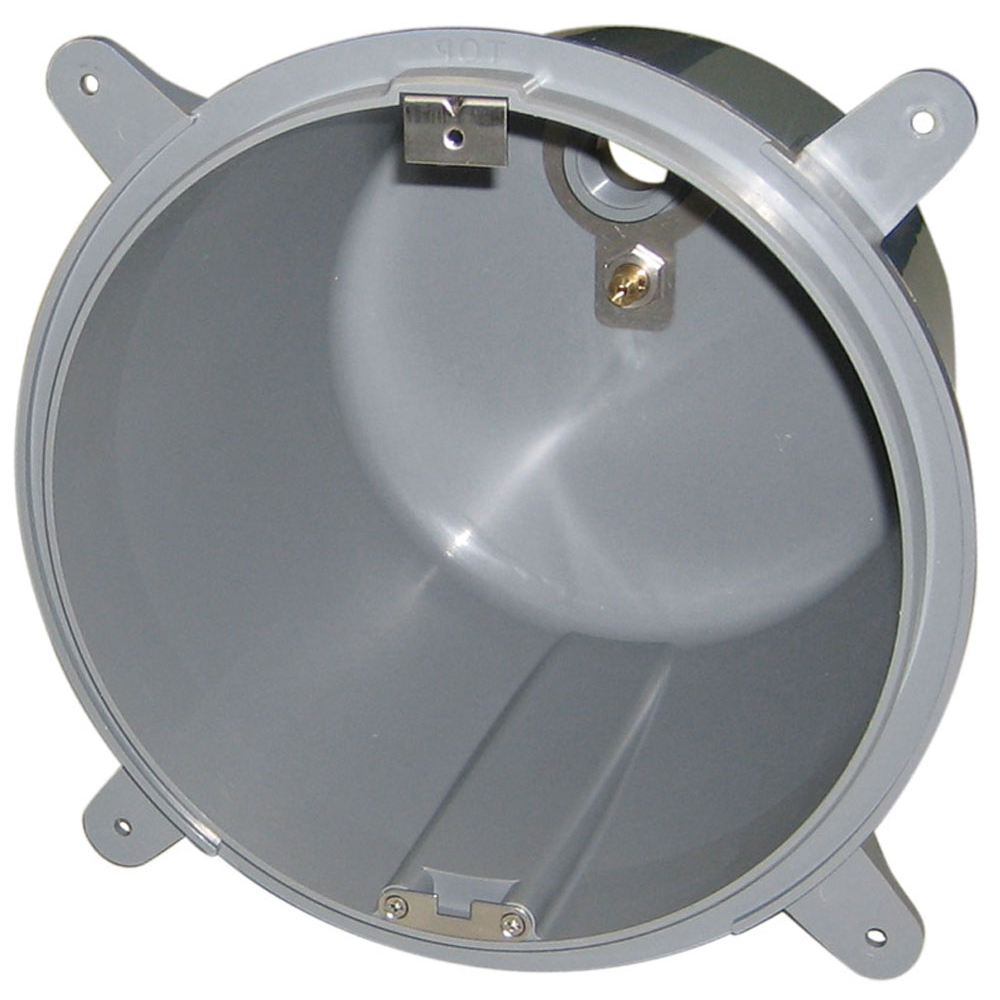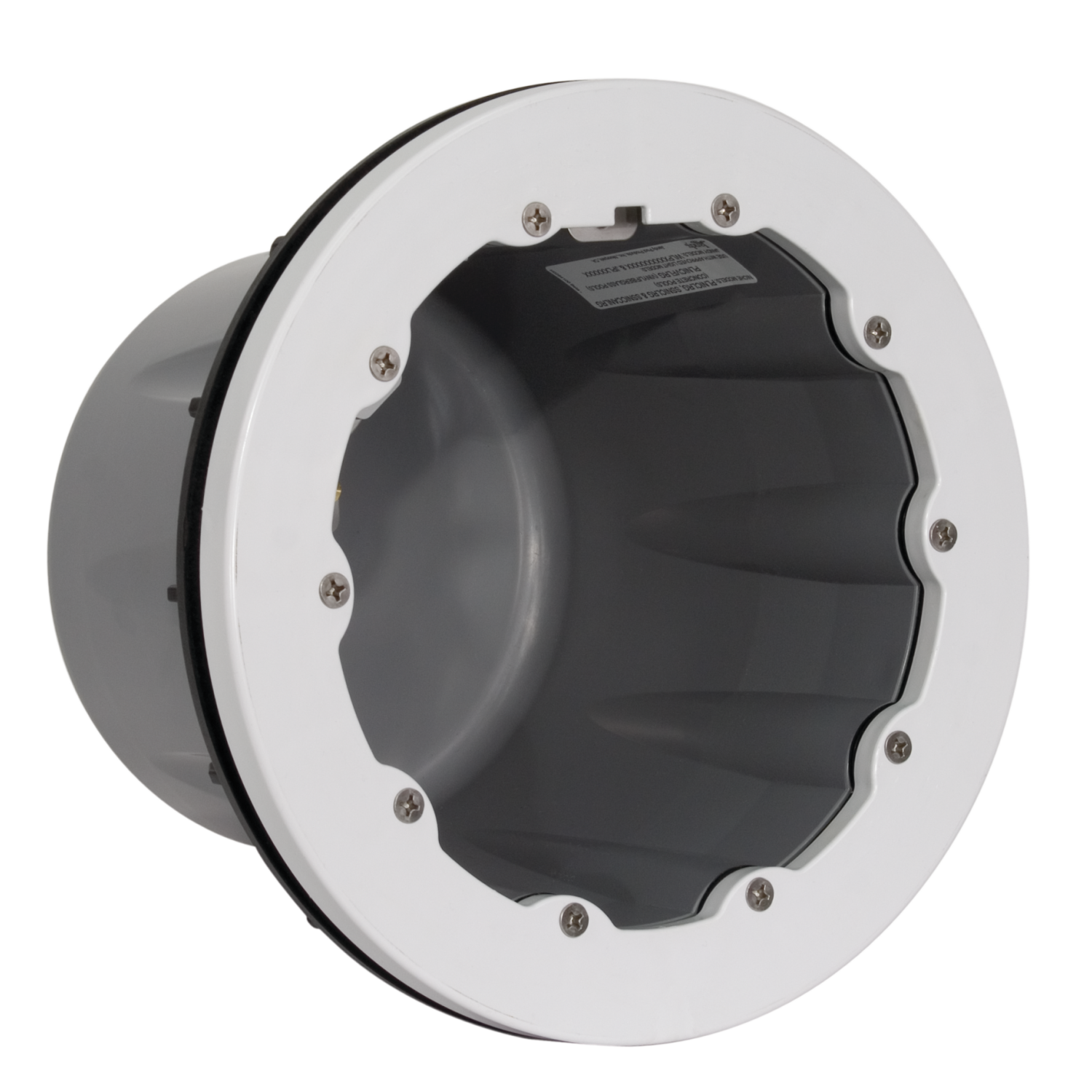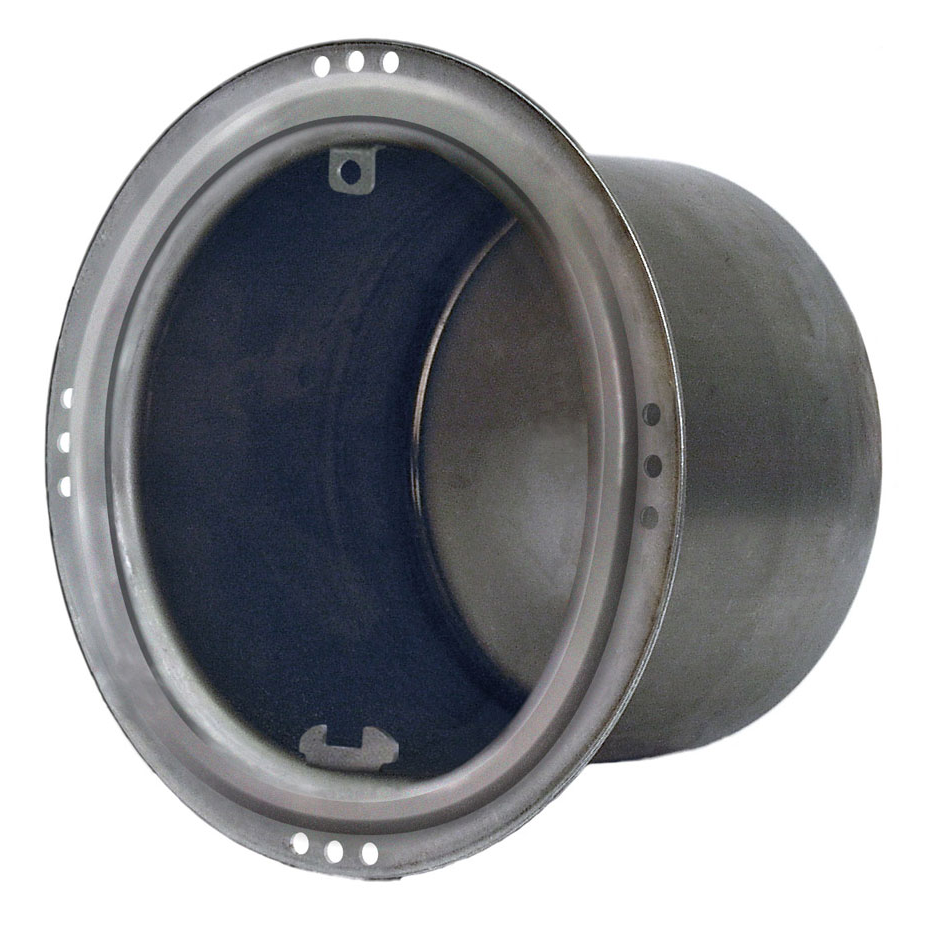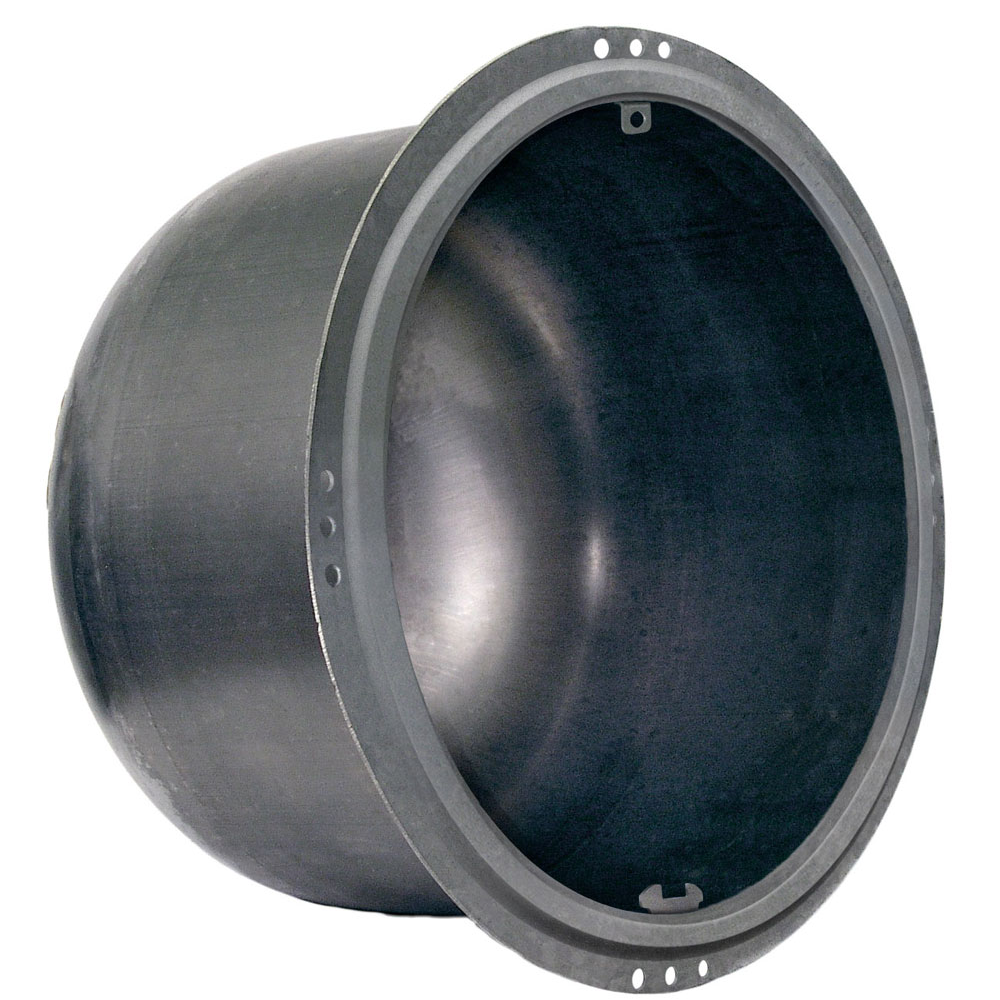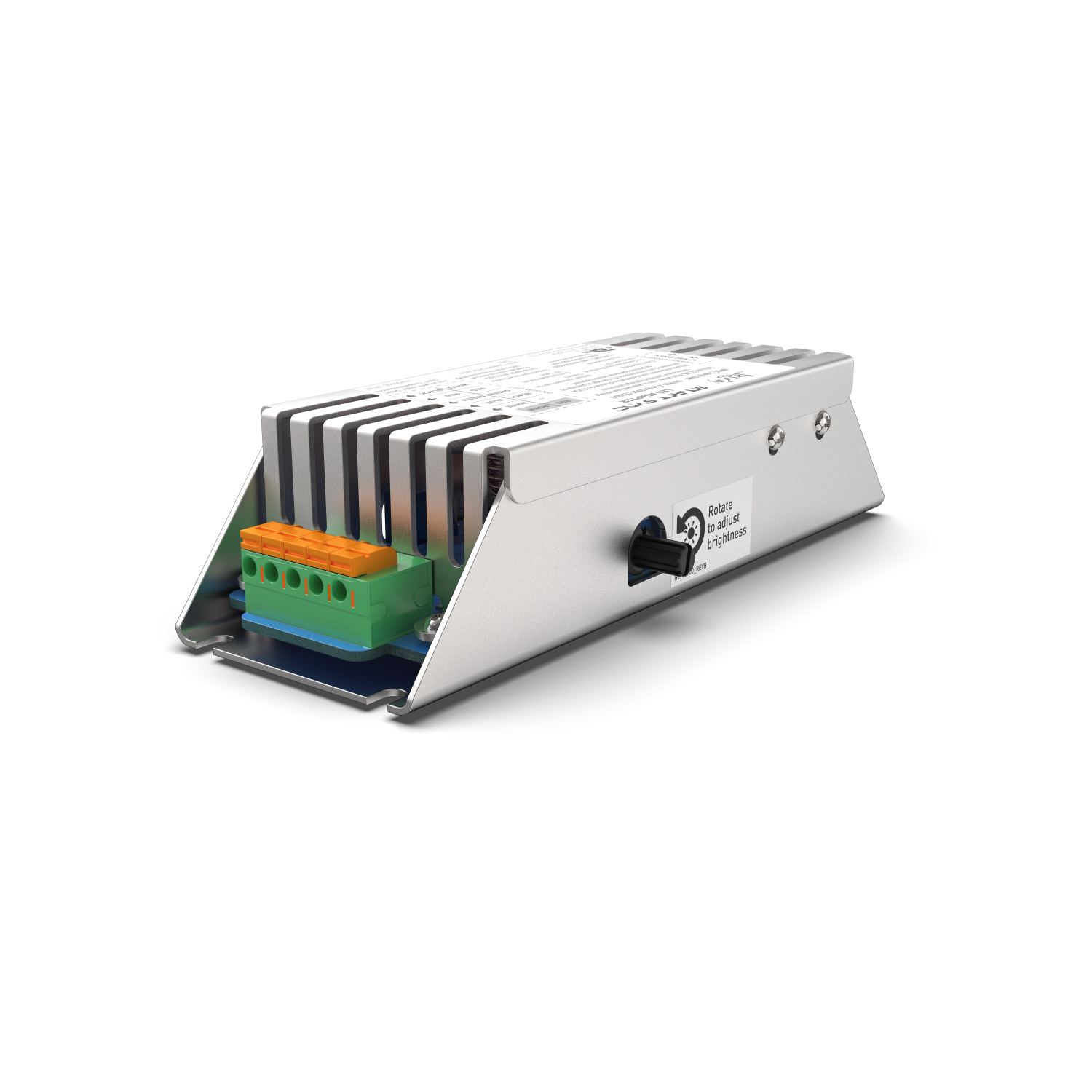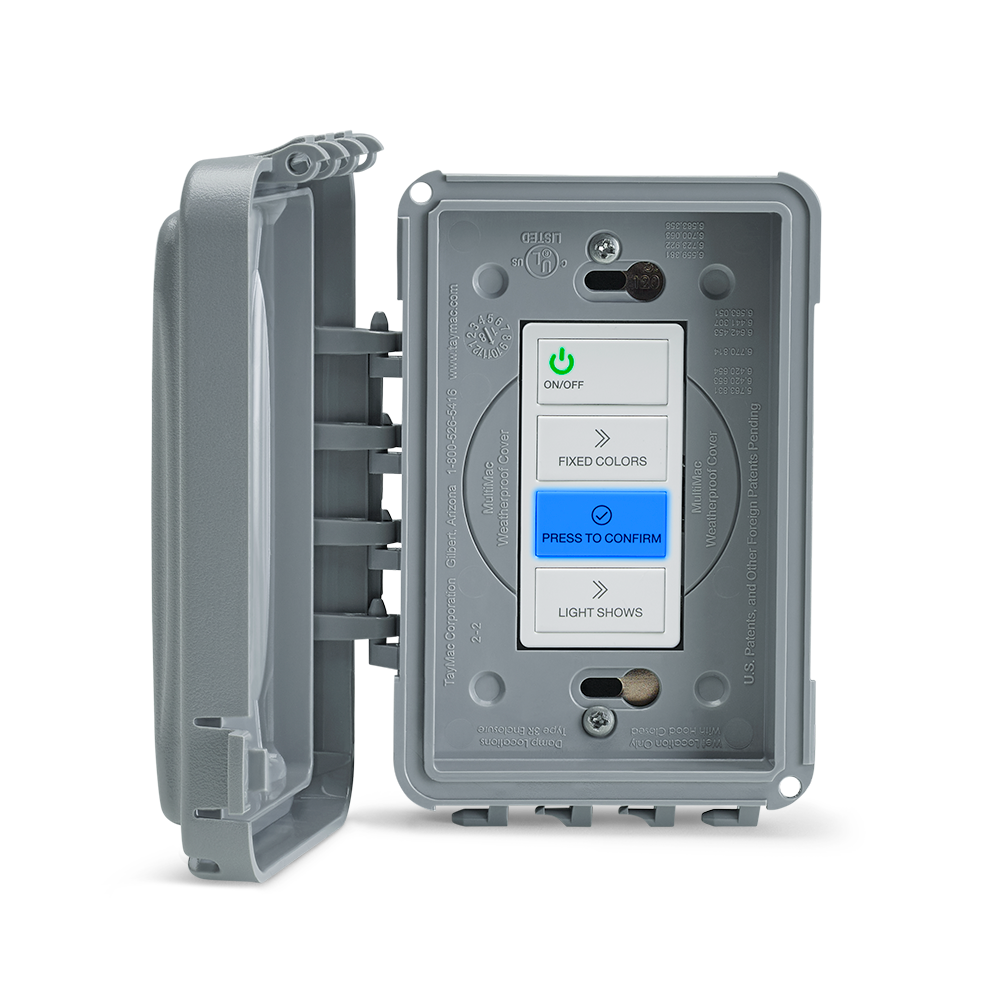Pool and Spa Lighting
Pool lights not only provide illumination for safe swims at night, they also contribute to your overall backyard aesthetic — accentuating the beauty of your pool design and enhancing your backyard experience.
WHY CHOOSE LED IN-GROUND POOL LIGHTS
Traditional pool lighting utilized incandescent lights, but today, LED pool lights are the preferred technology due to their durability, performance and efficiency.
LED pool lights can last up to 10 times longer than incandescent lights - greatly reducing the replacement and maintenance costs associated with incandescent pool lighting. Additionally, some smaller LED lights can have thinner diameter chords which can allow for easier replacement and reduced labor costs.
The amount of power a pool light uses to provide a given amount of light is measured in watts. Incandescent pool lights generally come in 100-, 300-, and 500-watt bulbs, while LED pool lights only require 18-65 watts of power to provide the same luminescence. Meaning, LED pool lights can use up to 87% less energy than their incandescent counterparts, resulting in significant savings on electrical costs.
While the upfront cost of incandescent lights may be appealing, LED lights come with a lower overall cost since they feature a longer and less expensive operational life. To break down the cost comparison, assume one 42-watt LED pool light and its equivalent of one 300-watt incandescent pool light run eight hours a day with an electricity cost of $0.15/kW an hour. 45-watt LED pool light 42-watt LED bulb x 8 hrs x 365 days = 122 kWh/ year at $0.15/ kWh = $18.00/year 300-watt incandescent pool light 300-watt incandescent bulb x 8 hours x 365 days = 876 kWh/ year at $0.15/kWh = $131.00/light That’s a savings of $114/year using LED lights.
POOL LIGHTING DESIGN FLEXIBILITY
Both niched and nicheless pool lights provide brilliant illumination for your pool, but due to their size, nicheless pool lights enable greater flexibility for more elaborate pool designs.
For example, nicheless lights can be installed in shallow sun shelves, narrow walls, under pedestals or installed vertically in grottos and negative edge basins for added lighting effects.
Space lights about every 8 feet along the wall to create an even glow. PRO TIP: Supplemental lighting is called for where intricate configurations and surfaces are involved. For example: if there’s a feature that merits detailed attention like an interior mosaic, rockwork that reaches below the waterline, or lights that need to be placed on steps.
Map out angles assuming a 60-degree beam spread. The actual beam spread will be wider, but the light within the 60-degree arc will provide optimal intensity and even light distribution throughout the pool.
Place lights at a uniform depth, between 9-12 inches below the waterline, throughout the pool. Possible exceptions would be if the lights need to be placed on a step or bench or extremely deep pools. PRO TIP: For deep ends greater than 12 feet, place lights between 18–24 inches below the water line. In the shallow end keep lights within 9–12 inches of the surface of the water.
Lights should be positioned 4 inches beneath the waterline.
Place lights below the bench or in the footwell. Doing so keeps people from resting their backs against a warm light and blocking out the light. If a bench runs along the side of the pool where the lights need to be placed, install lights several inches below the edge of the bench to prevent shadows.



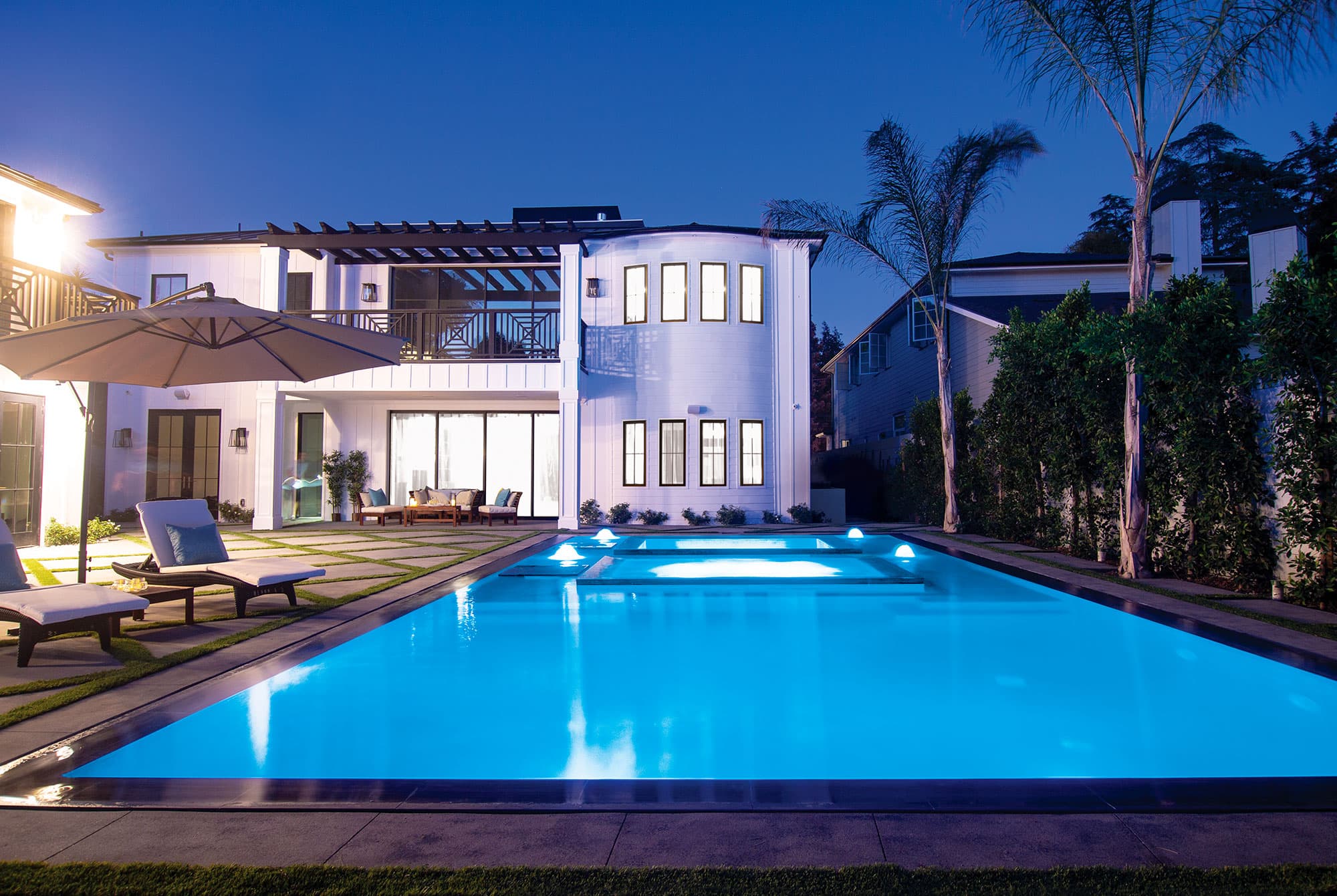
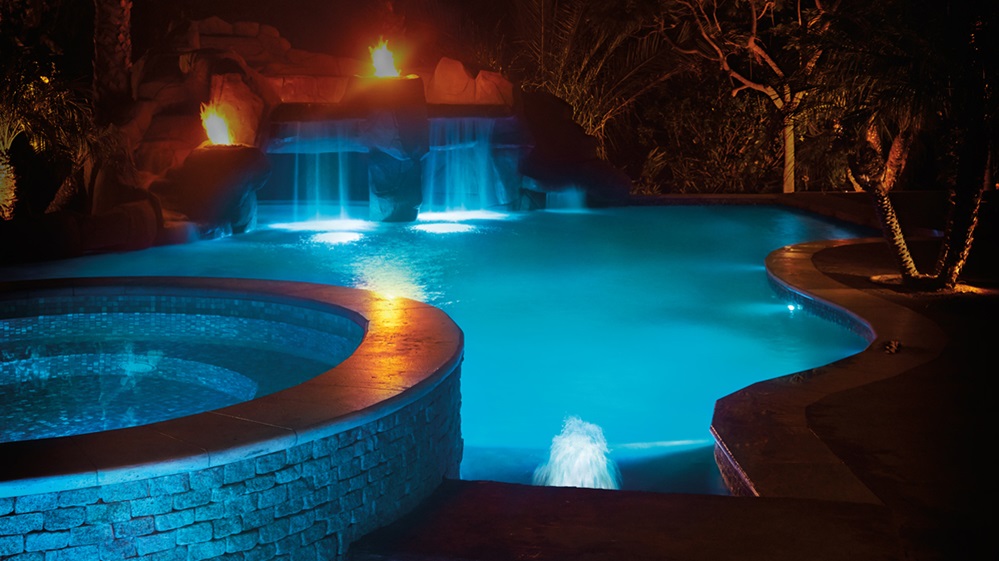
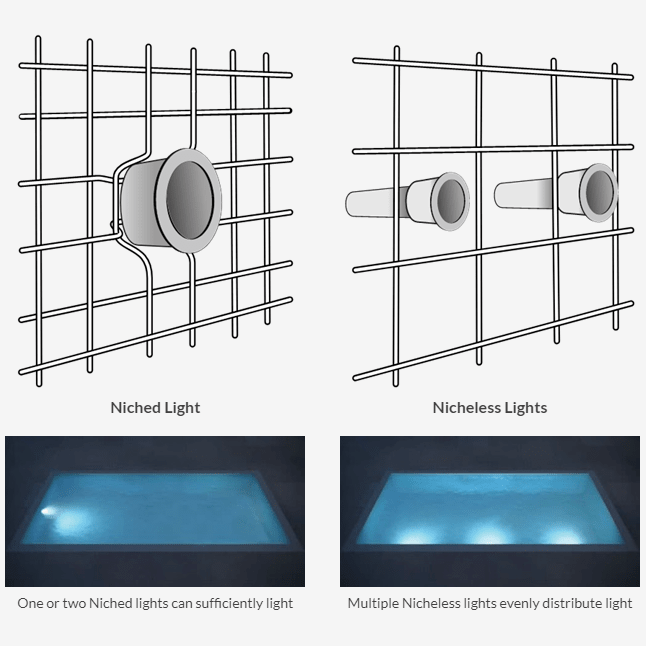
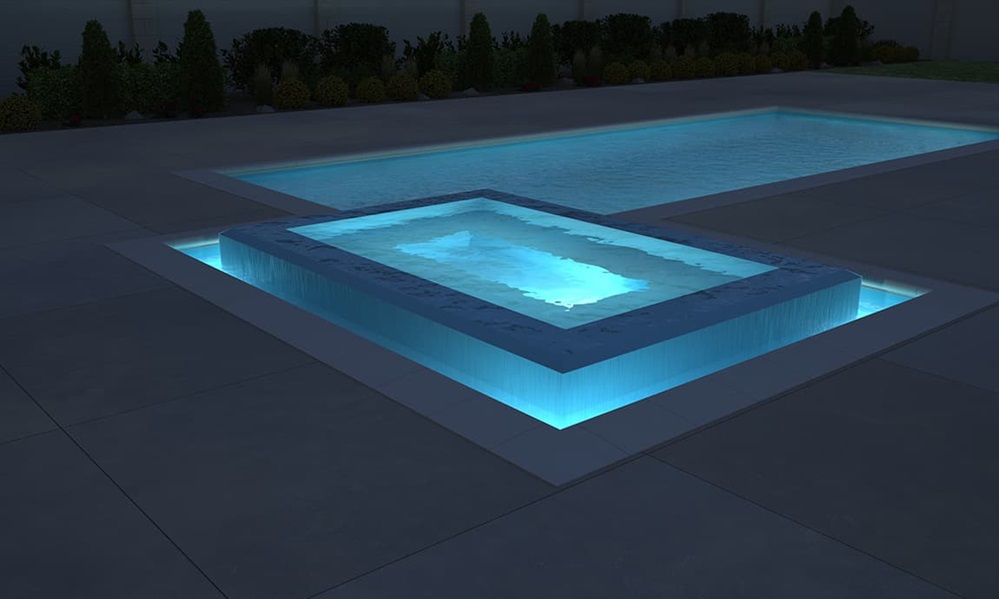
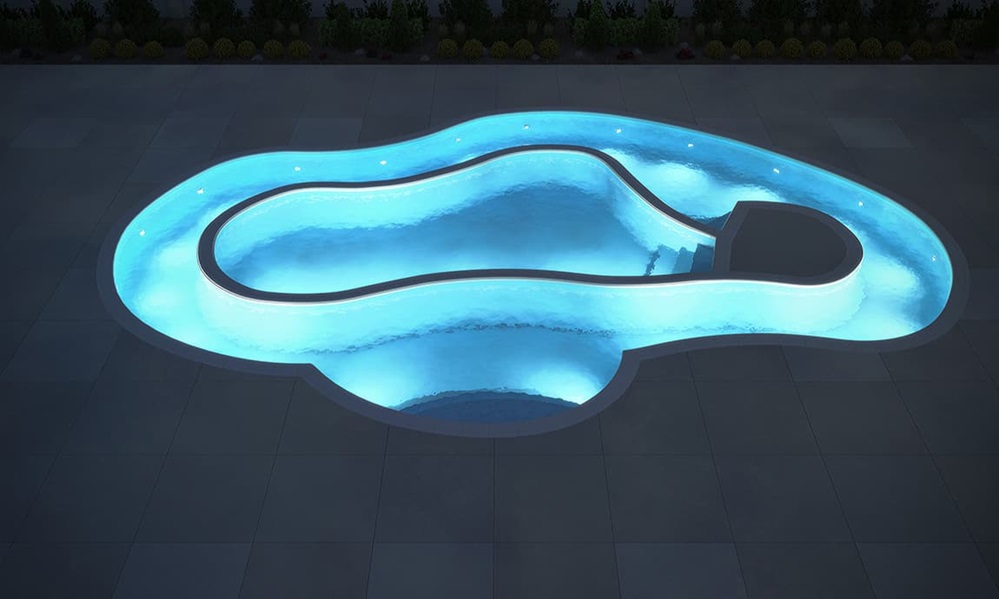
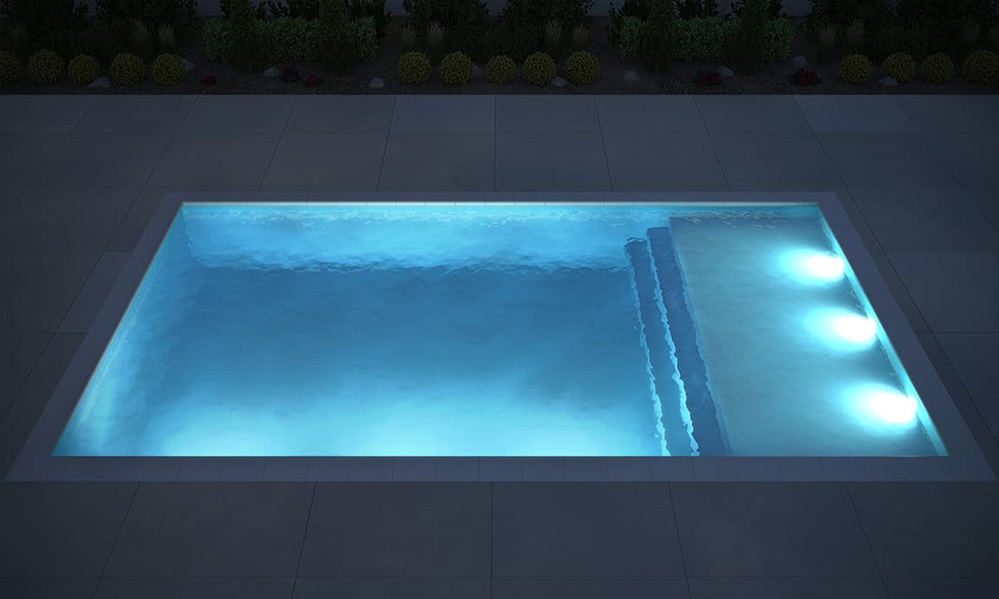
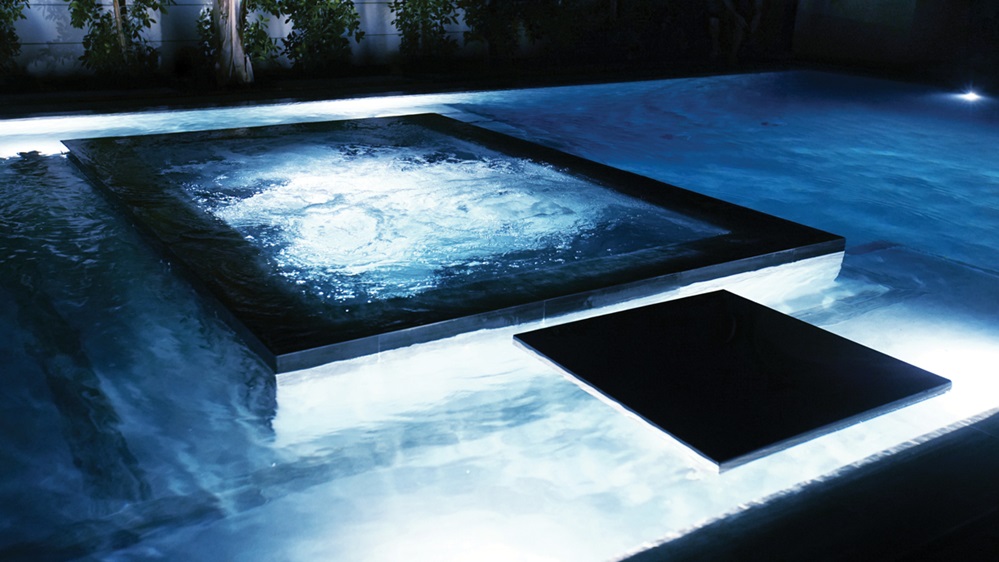
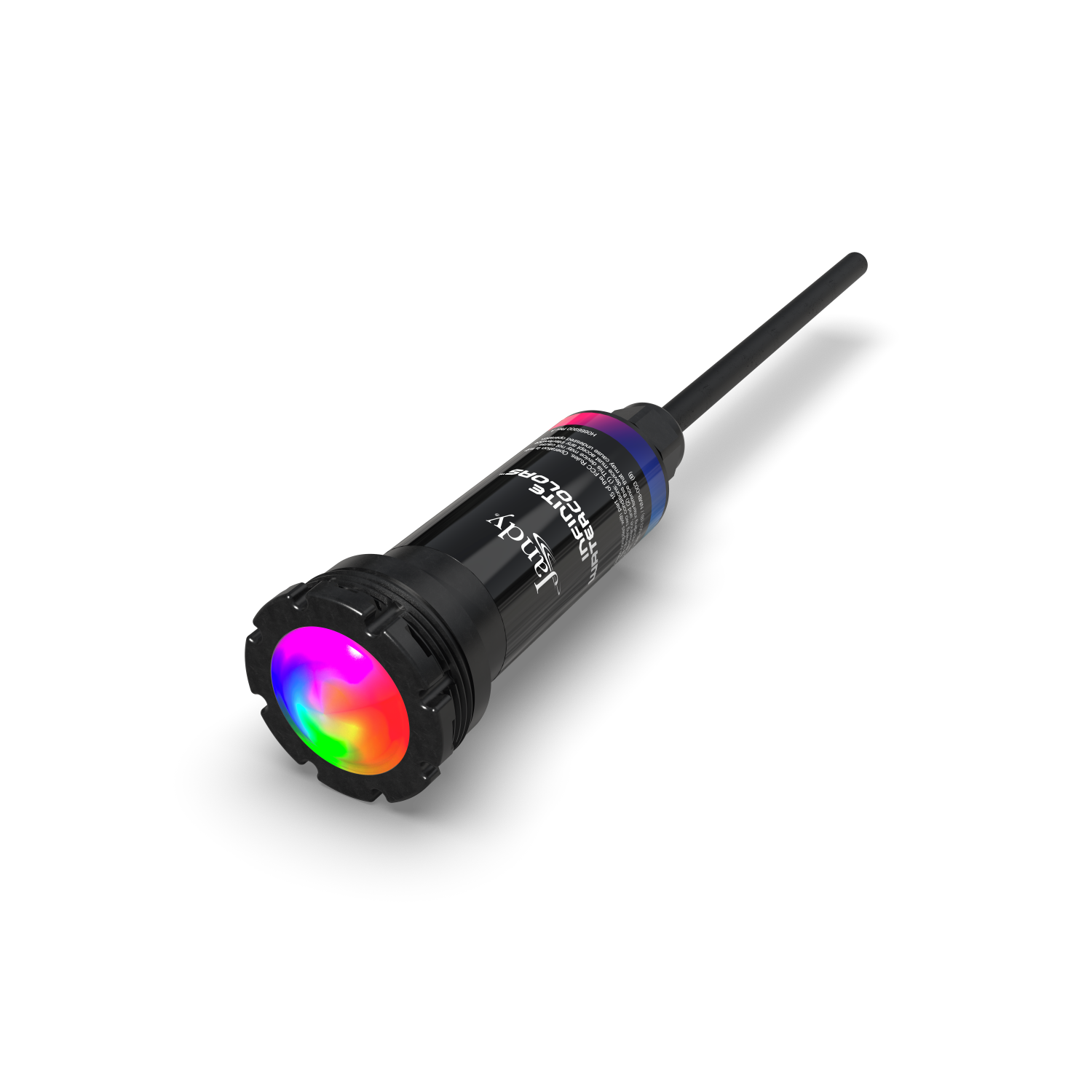
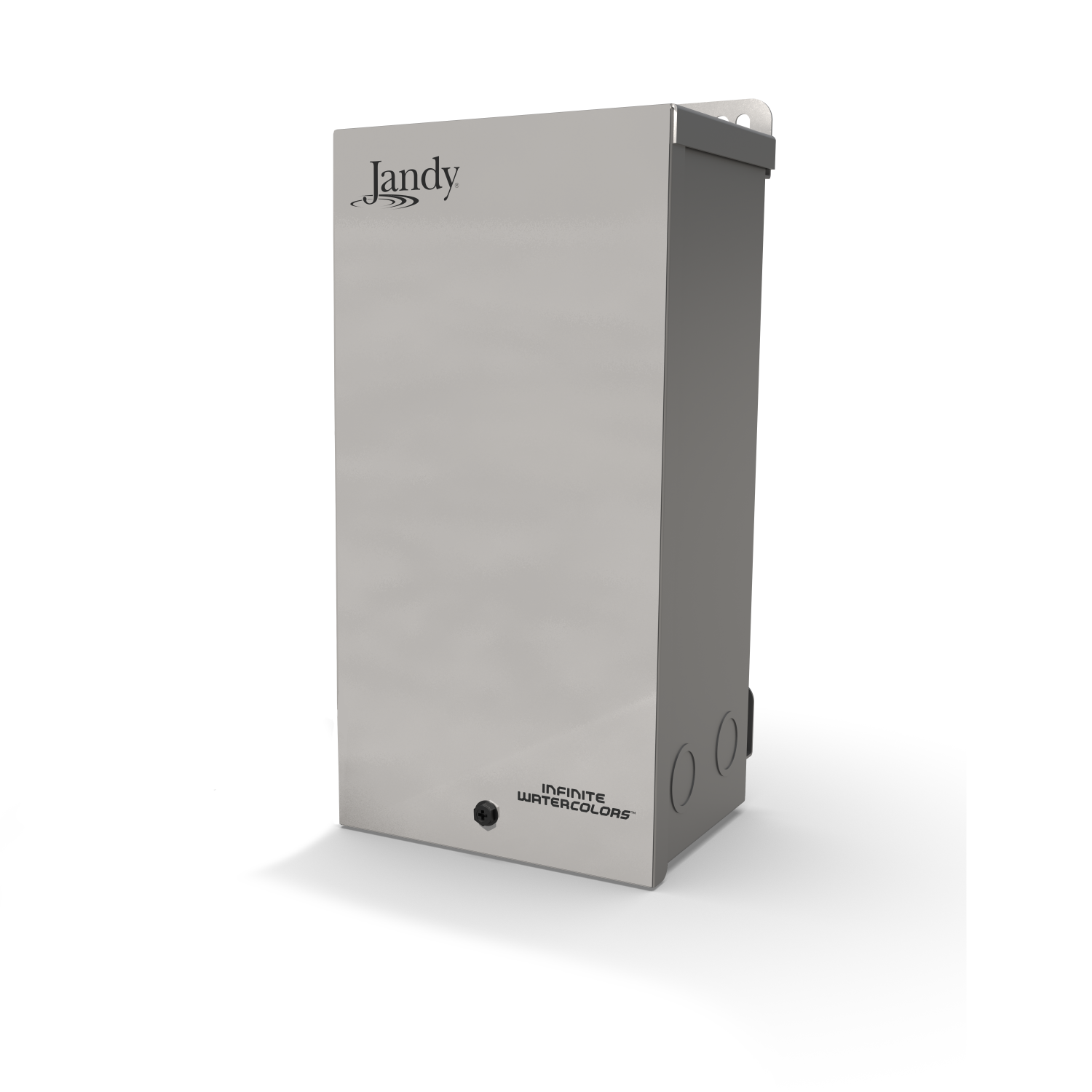
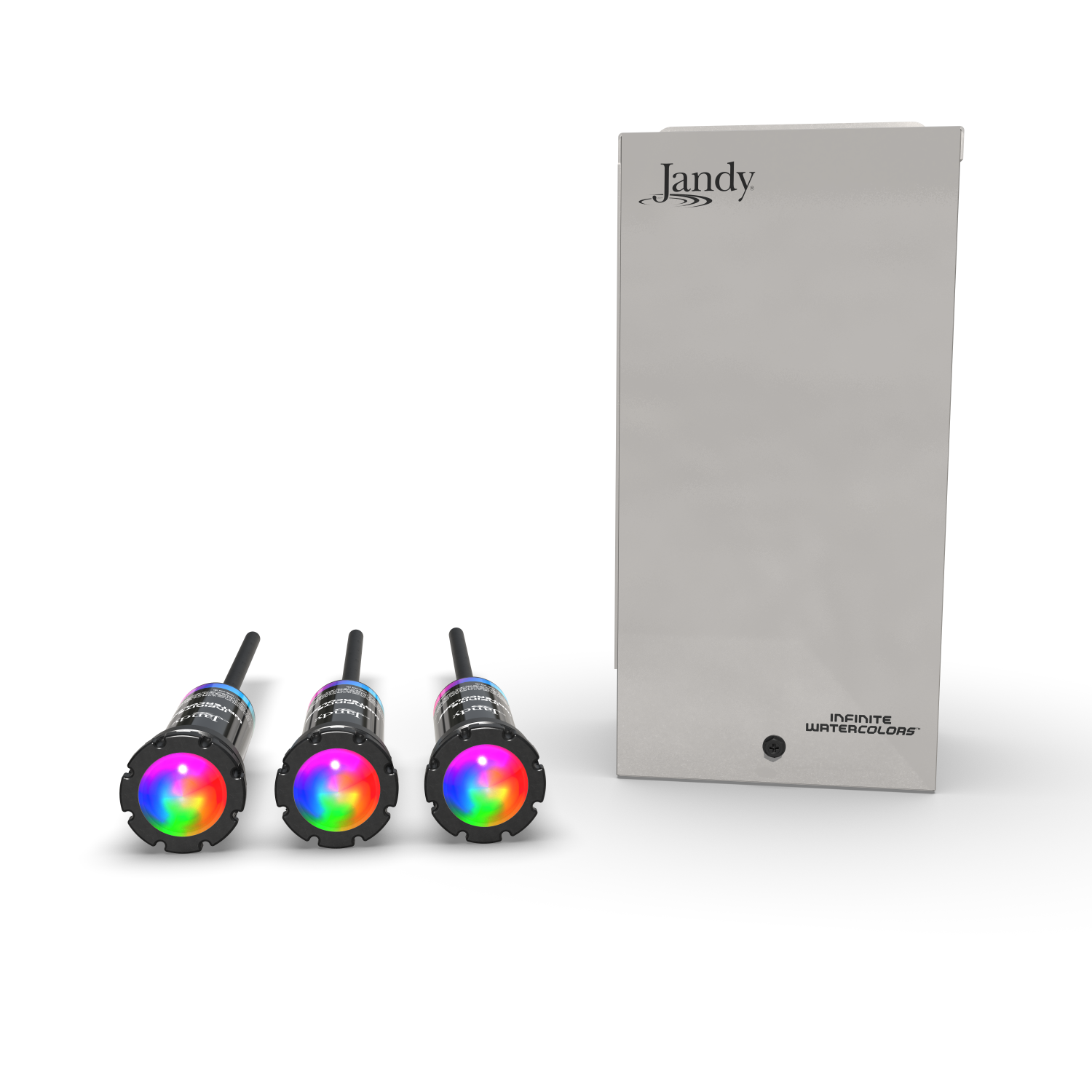
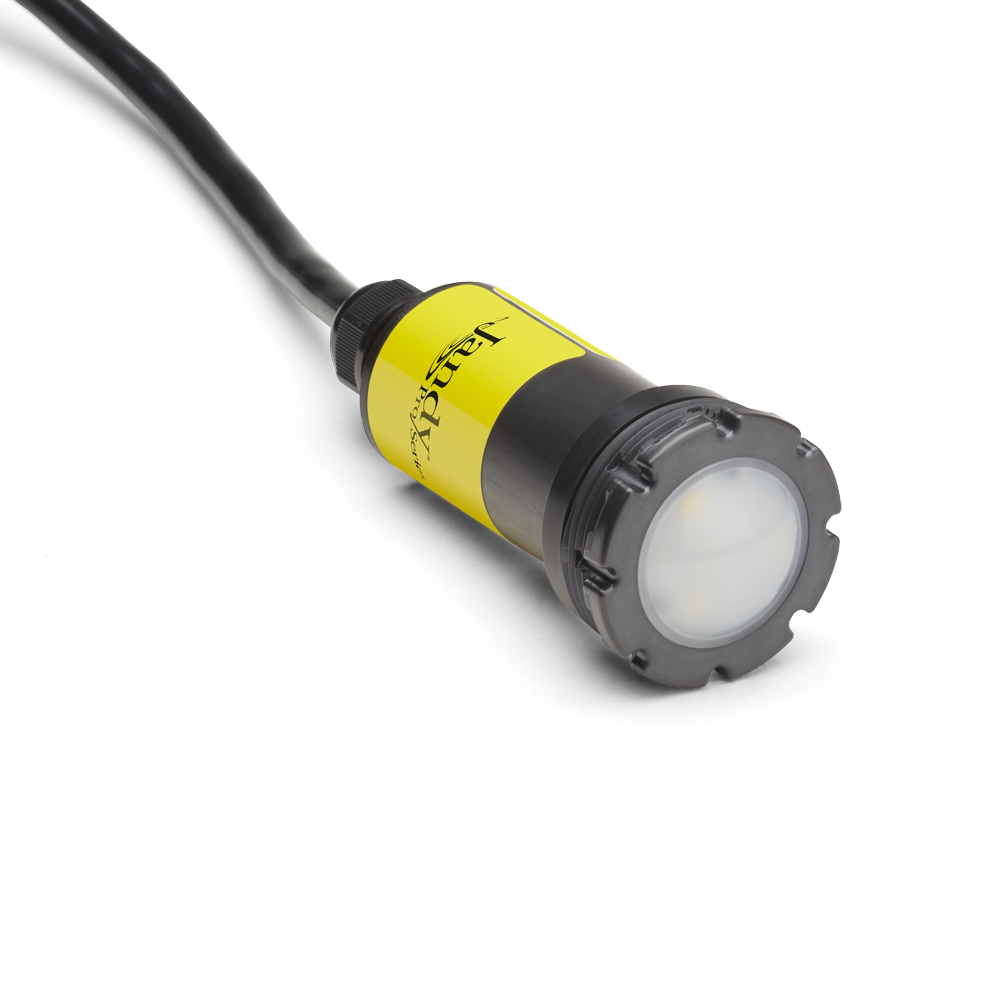
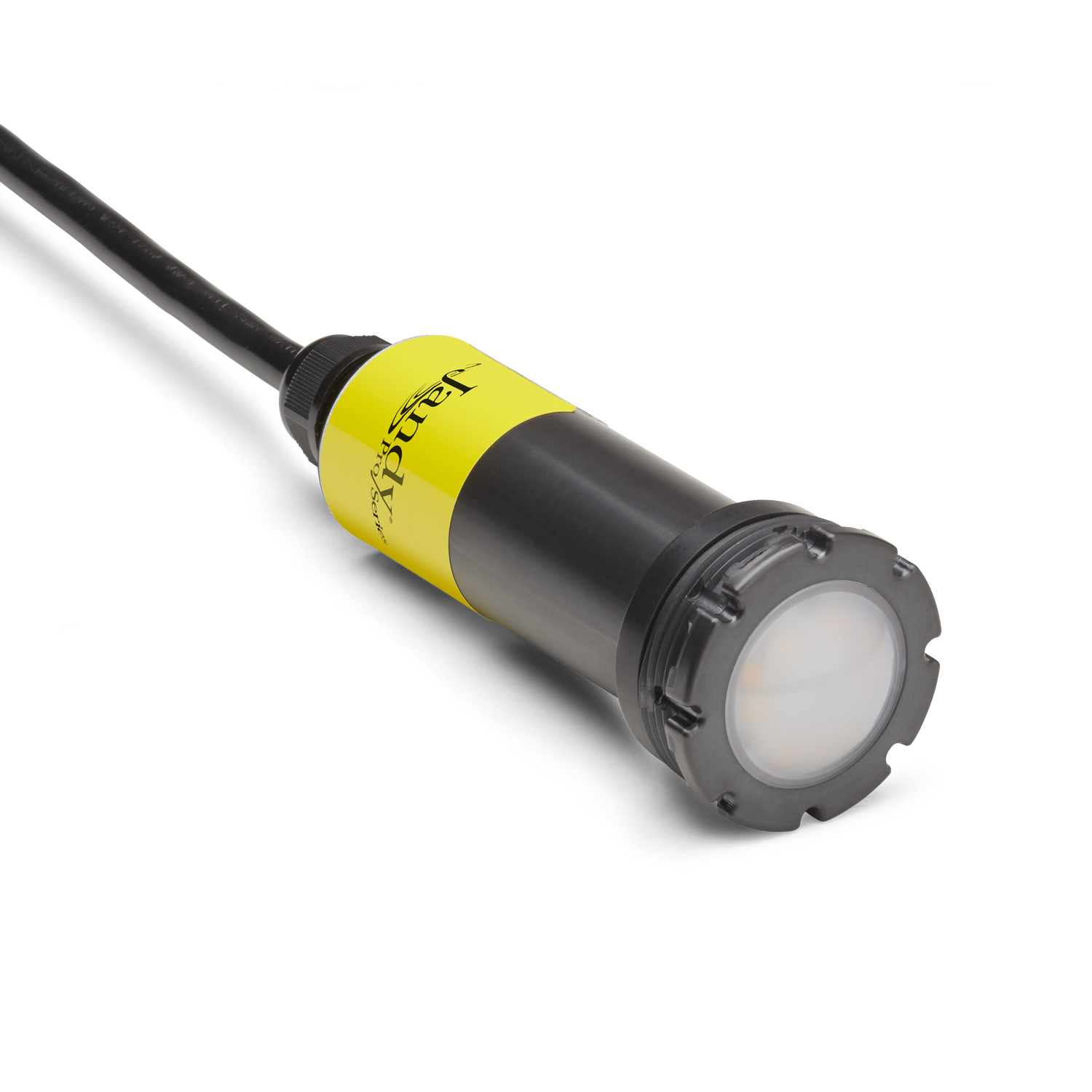
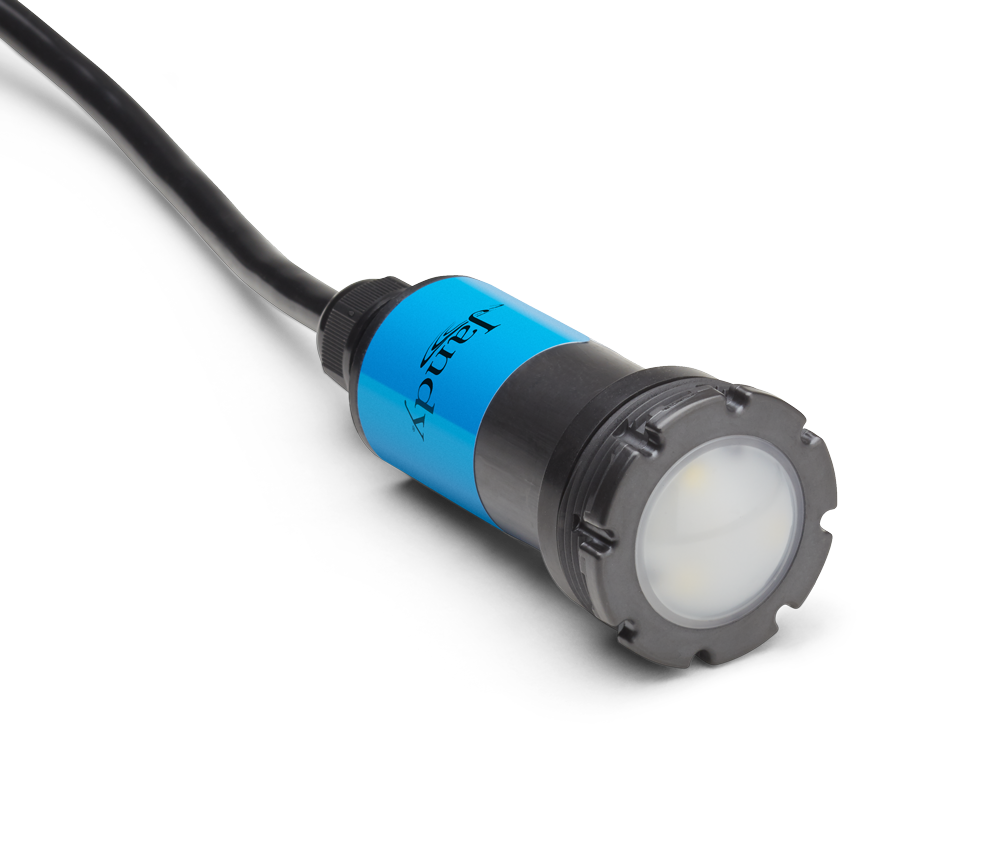
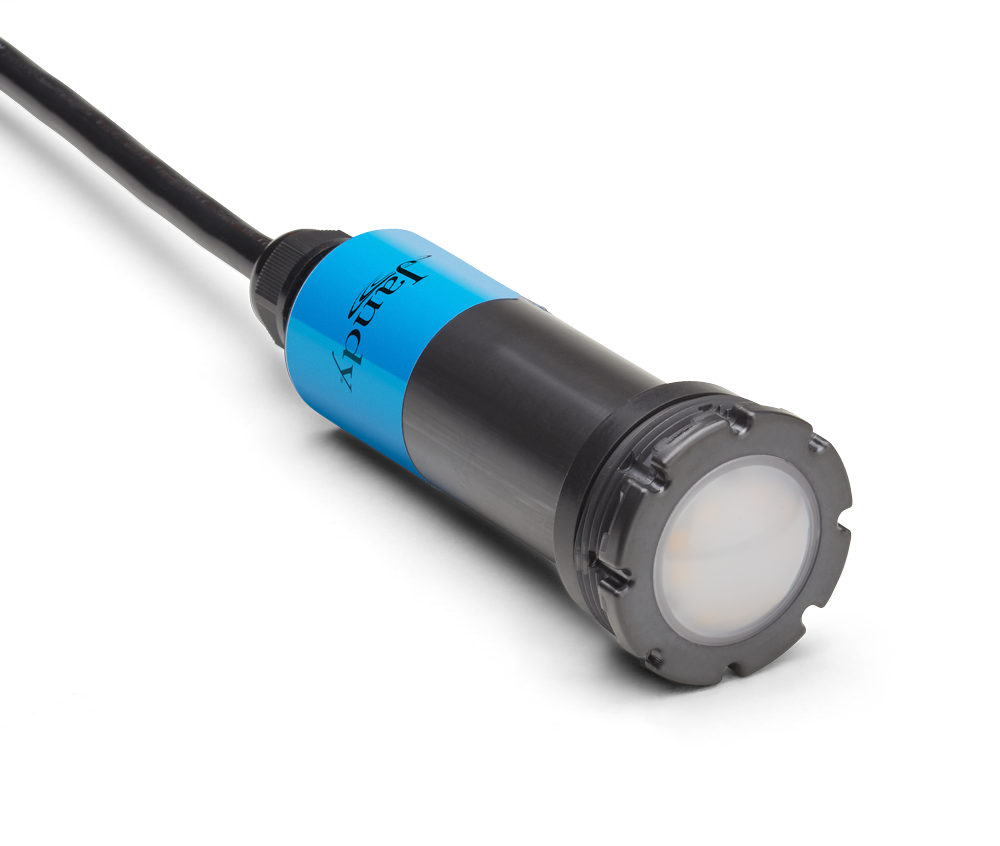
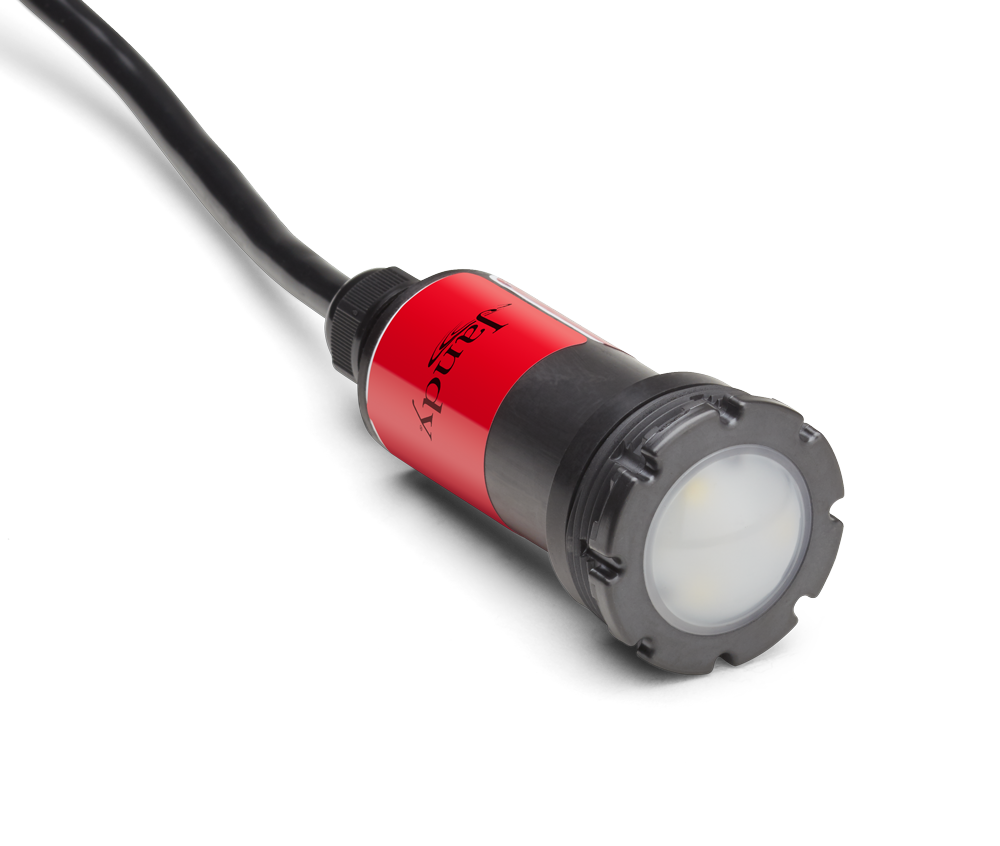
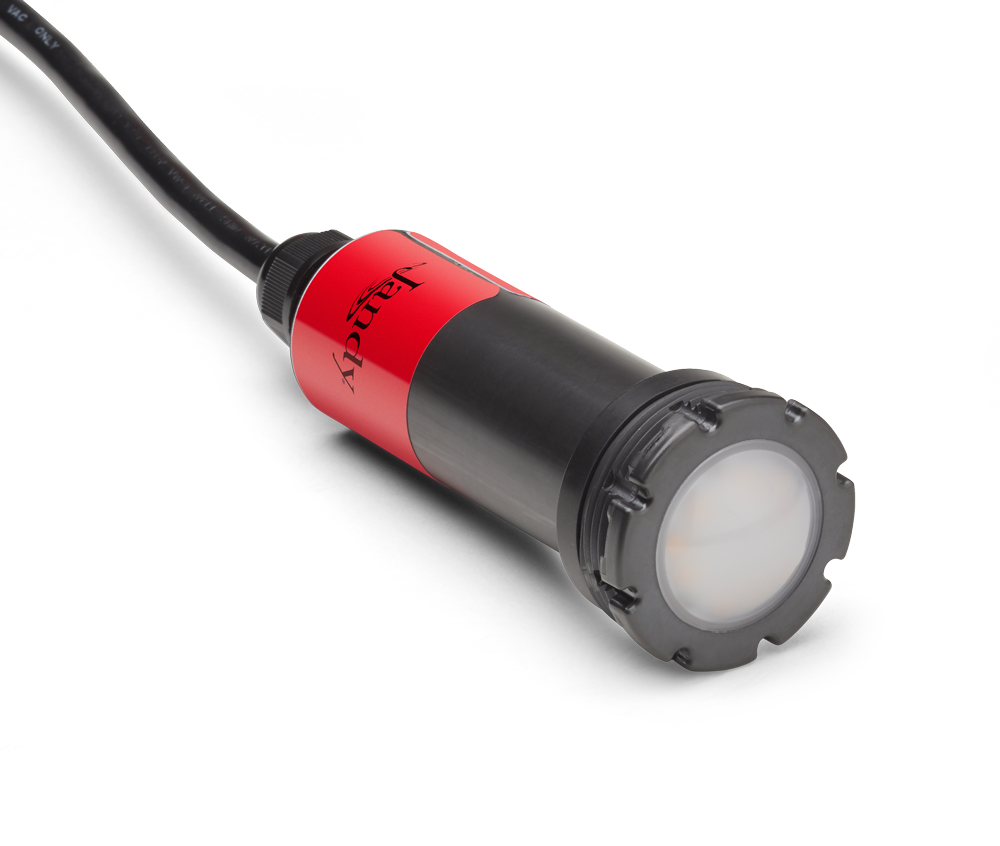
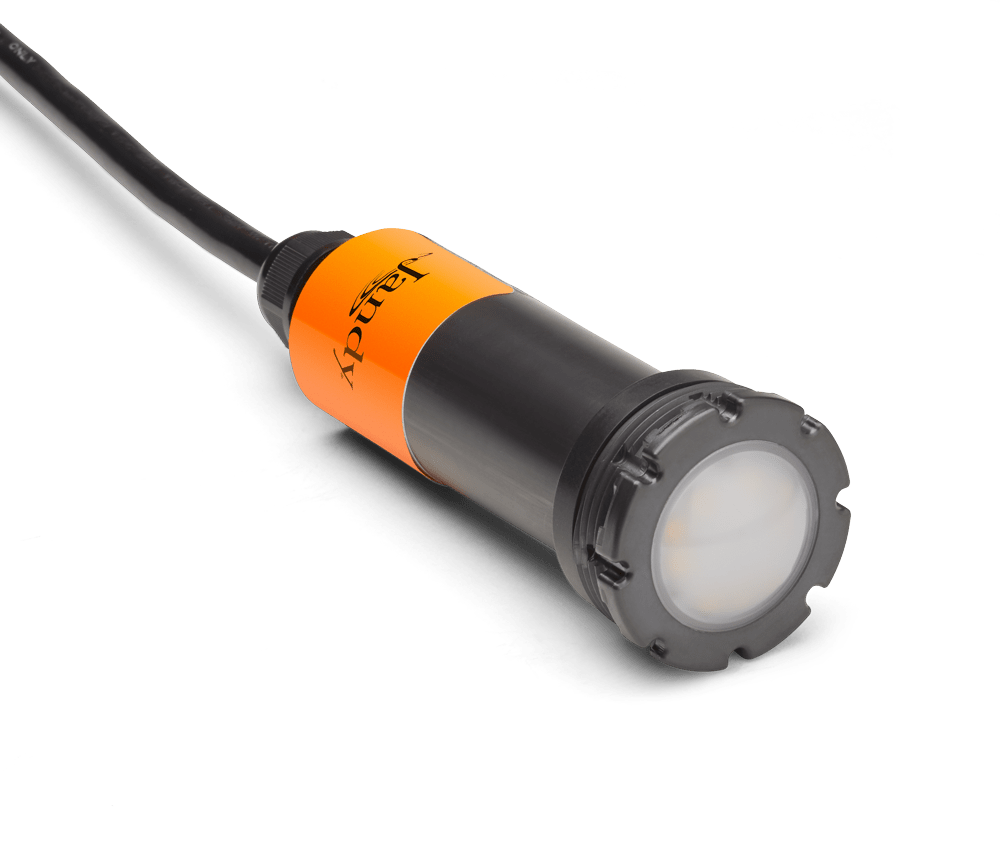
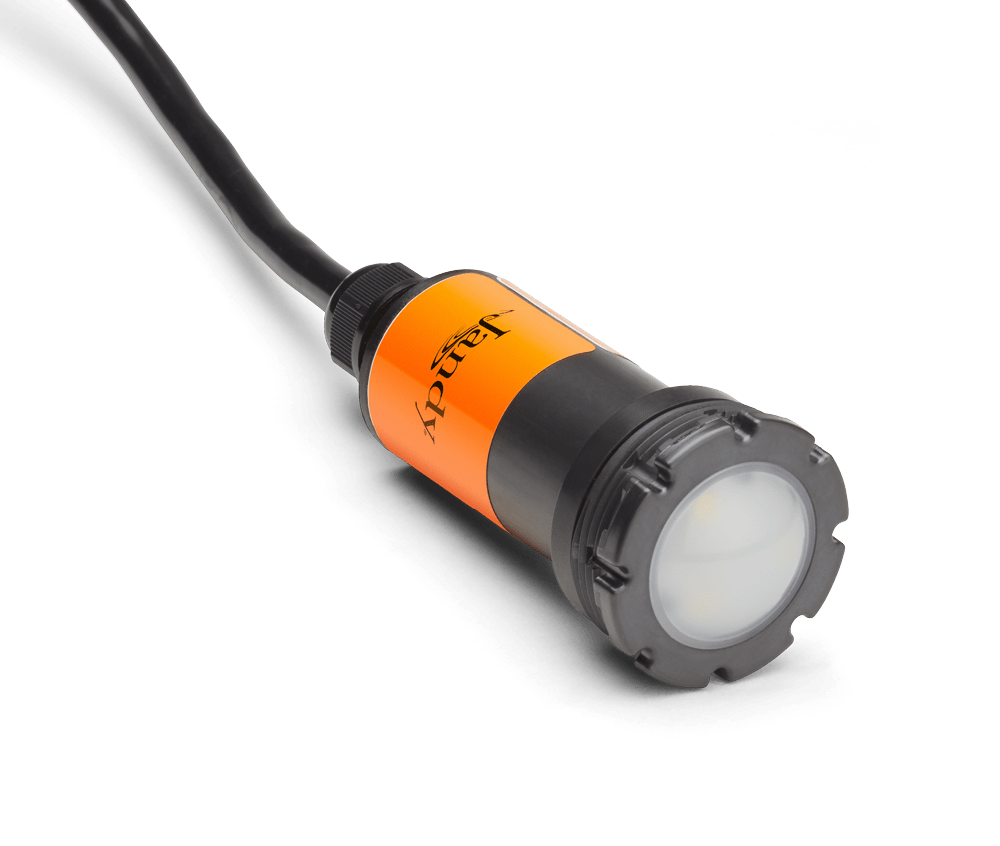
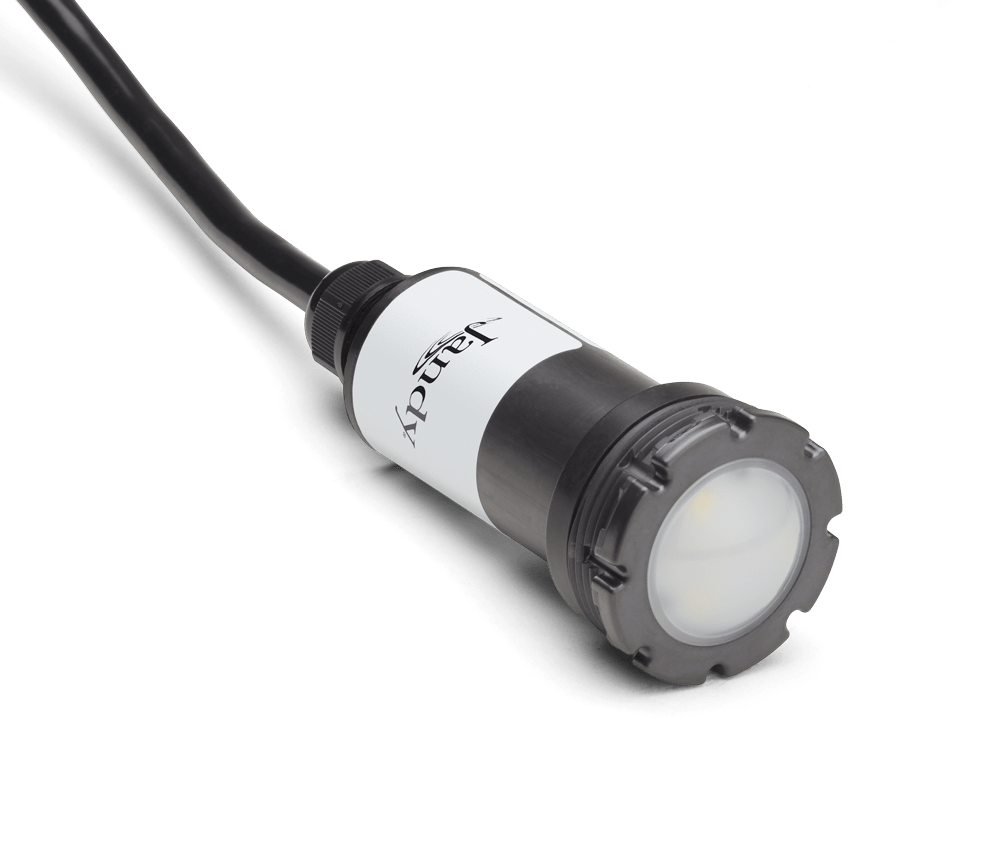
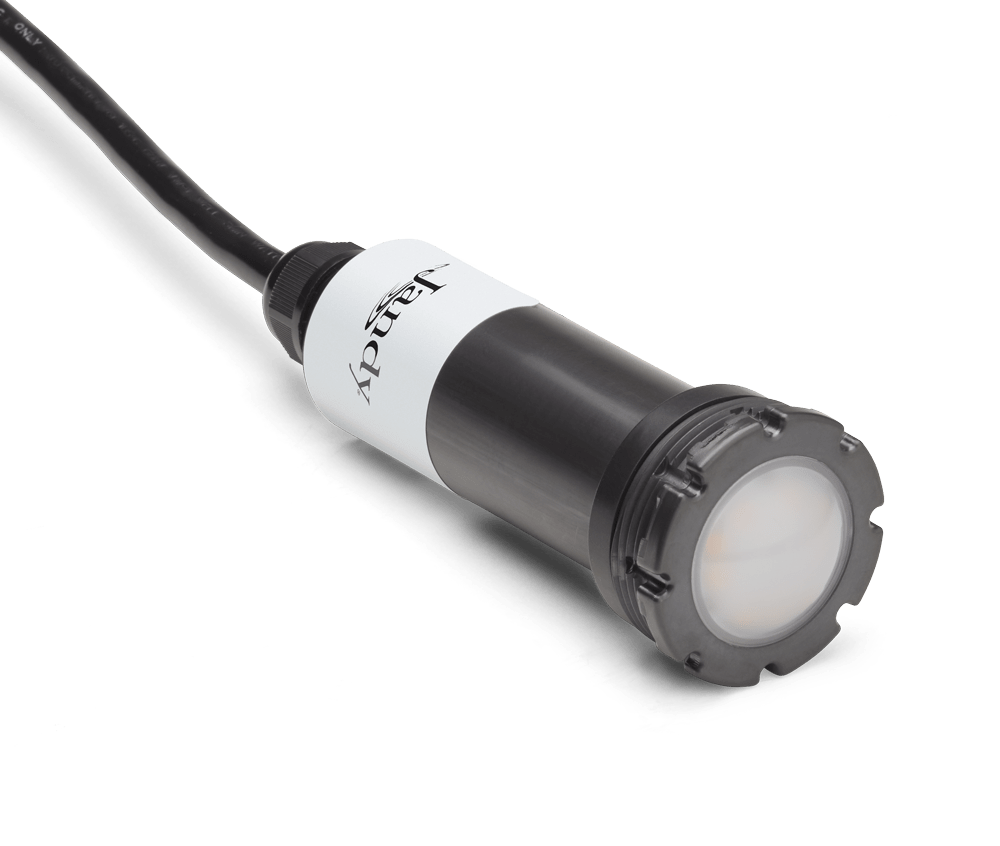
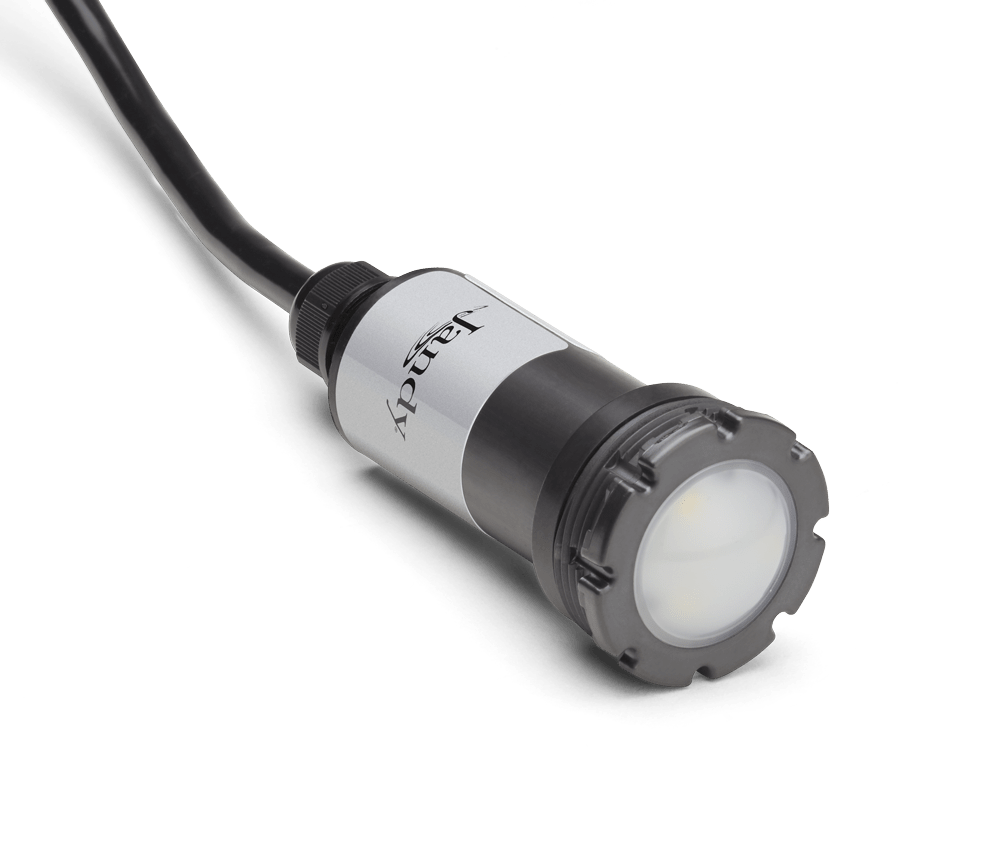
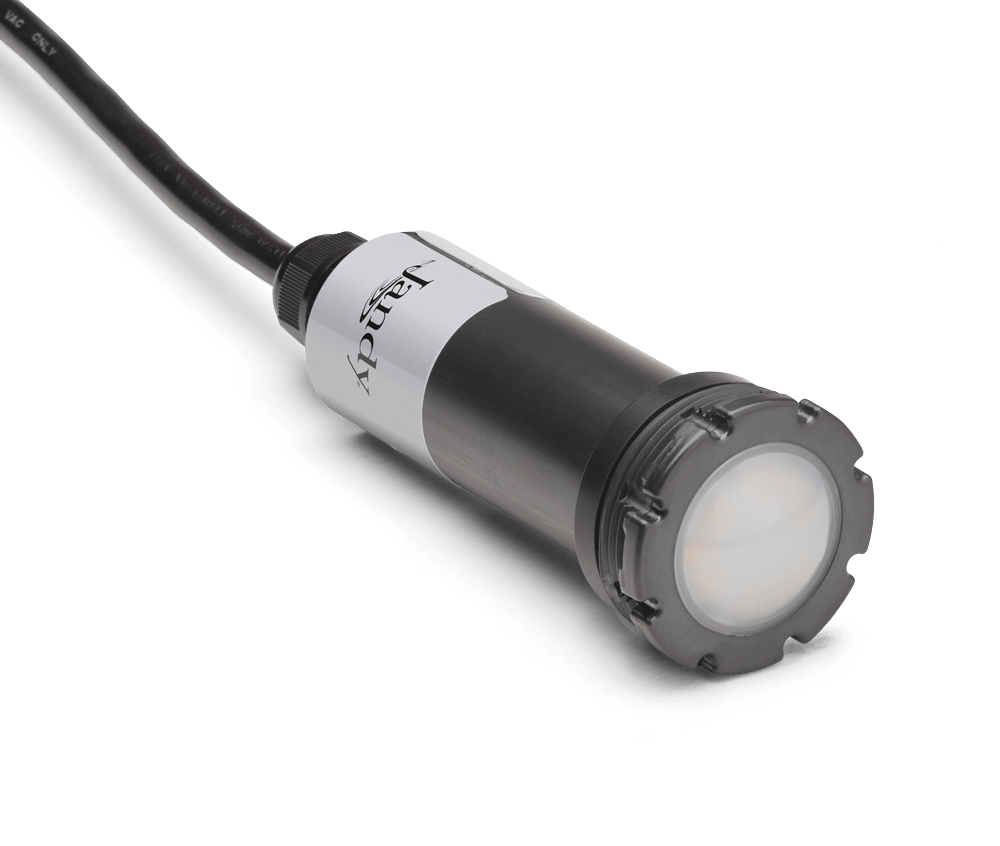
.png?rev=-1)
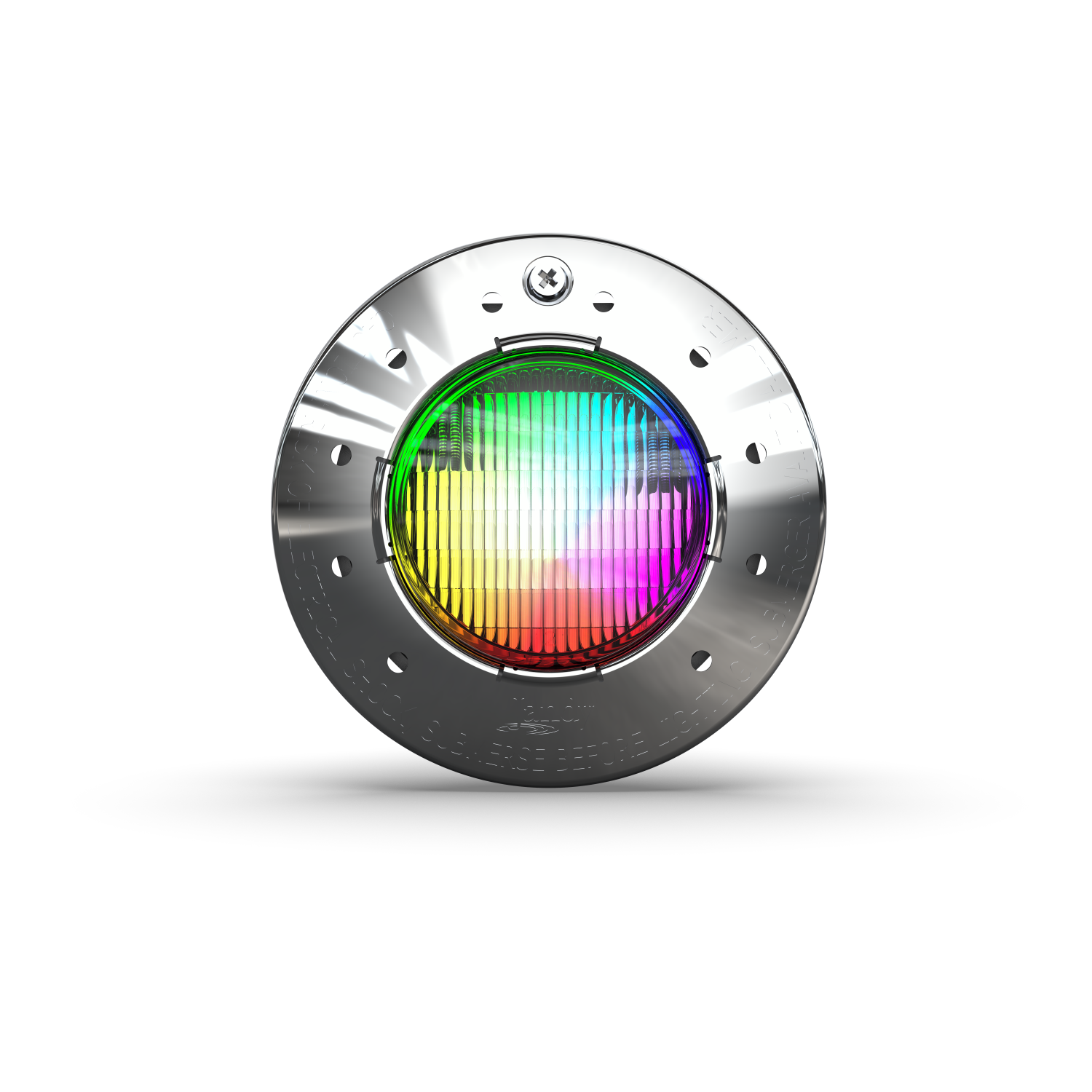
.png?rev=-1)
